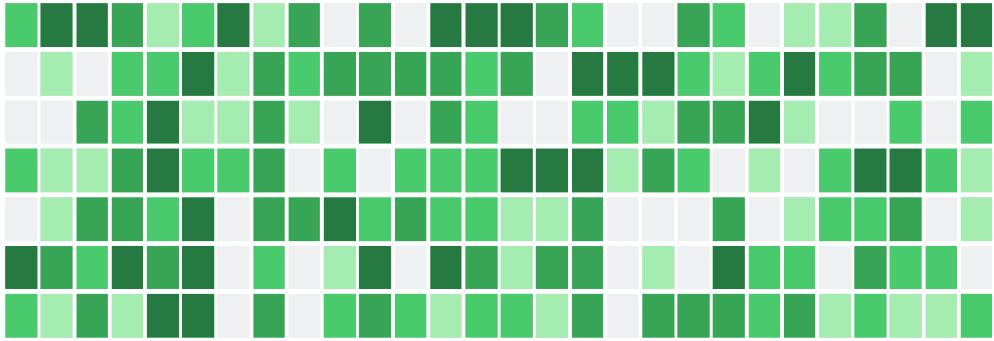Java Vs Javascript: Unveiling Language Differences
Java Vs JavaScript – two programming languages that share a similar name but have vastly different use cases, syntax, and applications. In the world of technology, it’s crucial to understand the distinctions between these two languages to make informed decisions when choosing the right tool for your project.
In this comprehensive guide, we explore Java and JavaScript, their origins, differences, strengths, ideal use cases, and how LearningFuze can help.
Java Vs JavaScript: An Overview
Java vs JavaScript can often cause confusion due to their similar names, but they are fundamentally different programming languages. Java, developed by Sun Microsystems in the mid-1990s, is known for its platform independence and robustness.
In contrast, JavaScript, created by Netscape in the same era, is primarily used for web development. It’s essential to understand their distinctions to avoid misconceptions and select the appropriate language for your project.
Java is versatile, offering the “write once, run anywhere” feature and adaptability for desktop, mobile, and enterprise applications. Its emphasis on object-oriented programming and strong typing fosters scalable, maintainable software. Java excels in Android app development, enterprise software, and large-scale projects, promising ample career opportunities.
JavaScript, the web’s foundation, started as a lightweight scripting language but now powers both front-end and back-end web development. Known for its ease of learning and dual client-side/server-side use, JavaScript, supported by a rich ecosystem, empowers dynamic, interactive web applications. Its demand remains high in web development, particularly front-end and full-stack roles.
Java: A Versatile Language for Building Applications
Java has earned its place as a staple of software development. Renowned for its versatility and reliability, Java has consistently proven itself as an invaluable tool for developers across a variety of domains. Its unique “write once, run anywhere” capability has been a game-changer, revolutionizing the way applications are built and deployed.
As a result of Java’s versatility, it can be used for a wide variety of application types, including desktops, mobile devices, and enterprise environments. This adaptability is deeply ingrained in several key features that set Java apart from its counterparts:
1. Platform Independence:
At the heart of Java’s acclaim lies its remarkable platform independence. The secret sauce behind this capability is the Java Virtual Machine (JVM). Acting as a mediator between the code and the underlying operating system, the JVM empowers Java applications to run seamlessly on a diverse array of operating systems and devices without necessitating modifications.
This “write once, run anywhere” mantra is a testament to Java’s commitment to cross-platform compatibility.
2. Object-Oriented Programming (OOP):
Java is firmly rooted in the principles of Object-Oriented Programming (OOP). This paradigm encourages developers to conceptualize software as a network of interconnected objects, fostering the creation of complex and scalable applications.
Core OOP tenets such as encapsulation, inheritance, and polymorphism are ingrained in Java’s DNA. These principles translate into a language that excels in building modular, maintainable, and extensible codebases, a cornerstone of successful software development.
3. Strong Type System:
The Java-type system is robust and strict, so code is more reliable in Java. This system mandates explicit data type declarations for variables, enabling the early detection of errors during the compilation process rather than at runtime.
By doing so, Java reduces the likelihood of unexpected behavior, thereby enhancing the overall robustness of applications developed in the language.
Java’s adaptability extends to a diverse array of application domains, solidifying its relevance across multiple industries:
Android App Development: Java has been a cornerstone of Android app development for years. Its compatibility with Android’s operating system has made it the language of choice for creating mobile applications that run on billions of devices worldwide.
Enterprise Software: Java is a top choice for developing enterprise-level software solutions. Its platform independence, scalability, and extensive libraries make it an ideal language for crafting mission-critical applications in corporate settings.
Large-Scale Projects: Java’s architecture and modularity are well-suited to managing the complexity of large-scale projects. It provides the tools and frameworks necessary for building and maintaining extensive systems with ease.
With its wide array of applications and continuous relevance in the tech industry, Java offers exceptional job prospects and diverse career opportunities for developers.
Its enduring popularity stems from its adaptability, platform independence, and adherence to industry best practices, making it a language of enduring value in the ever-evolving world of software development.
JavaScript: The Language of the Web
In 1995, Brendan Eich unveiled JavaScript, originally conceived as a lightweight scripting language destined for web browsers. Little did he know that this invention would revolutionize the way websites functioned, ushering in an era of dynamic and interactive web experiences.
JavaScript has undergone remarkable growth, evolving into a versatile language that transcends its initial role. Some defining attributes of JavaScript include:
1. Ease of Learning:
JavaScript has earned its reputation as an accessible language, renowned for its ease of learning. Its syntax is intuitive, often likened to writing in plain English, making it inviting for newcomers to programming.
This accessibility lowers the entry barrier for aspiring developers and accelerates the creation of web applications. JavaScript’s gentle learning curve empowers individuals to swiftly grasp its concepts, fostering a vibrant and diverse developer community.
2. Client-side and Server-Side Scripting:
One of JavaScript’s most remarkable traits is its dual capability for both client-side and server-side scripting. This inherent versatility empowers developers to craft dynamic, responsive interfaces within web browsers.
User interactions are elevated to new heights as JavaScript fuels real-time updates and interactivity. Moreover, JavaScript extends its reach to the server-side realm through technologies like Node.js.
This synergy enables developers to seamlessly merge front-end and back-end functionalities, setting the stage for full-stack web development. The ability to wield JavaScript across the entire web development stack underscores its significance in modern application development.
3. Vast Ecosystem:
JavaScript’s ecosystem stands as a treasure trove for developers. It boasts an extensive collection of frameworks and libraries that cater to a diverse spectrum of development needs.
Prominent among these are React, Angular, and Vue.js, each with its unique strengths and capabilities. These tools serve as force multipliers, enabling developers to streamline their workflows, accelerate development cycles, and create intricate and feature-rich web applications with efficiency.
The availability of such resources within the JavaScript ecosystem significantly reduces the time and effort required to bring innovative ideas to life.
JavaScript’s Indispensability in Modern Web Development
JavaScript’s role in modern web development is pivotal. It serves as the driving force behind interactive web pages, responsive user interfaces, and dynamic content delivery. Websites have transcended static pages, evolving into immersive, interactive experiences, thanks to JavaScript’s influence. Users now expect seamless interactivity, real-time updates, and engaging interfaces, all of which are made possible by JavaScript’s capabilities.
Career Opportunities in the JavaScript Ecosystem
JavaScript’s omnipresence in web development translates into numerous job opportunities, especially in domains like front-end and full-stack development. The demand for skilled JavaScript developers is evident, with statistics showing that jobs in web development, including JavaScript development, are expected to grow by 13% from 2020 to 2030, highlighting the increasing need for digital expertise.
Whether you’re crafting visually stunning user interfaces, optimizing website performance, or architecting server-side applications, JavaScript proficiency opens doors to diverse and rewarding career paths.
As the web continues to evolve, JavaScript remains at the forefront of innovation, ensuring its relevance in the ever-changing landscape of digital experiences. Embracing JavaScript means embracing the future of web development and the boundless possibilities it offers to developers worldwide. Its journey from a lightweight scripting language to a dynamic, versatile powerhouse exemplifies its enduring impact on the world of technology.
Choosing the Right Language for Your Goals
When it comes to programming, choosing the right language aligns with your learning goals and career aspirations. Whether you’re drawn to web development, mobile app creation, enterprise-level software, or full-stack development, considering Java and JavaScript’s distinct strengths is crucial:
Web Development:
JavaScript is the Obvious Choice: For those with a passion for crafting the web’s interactive and dynamic facets, JavaScript is the go-to language. Its versatility enables developers to create engaging websites, and the demand for JavaScript skills in the web development field is ever-expanding.
Android App Development:
Java is the Preferred Language: If your ambition is to delve into the world of Android app development, Java takes center stage. Android Studio, the official Integrated Development Environment (IDE) for Android, relies on Java as its primary language. Learning Java equips you with the essential skills to build Android applications.
LearningFuze offers a Java course as a short, part-time upskill course where experienced developers can gain deep expertise in the worlds #1 programming language.
Enterprise Software and Large-scale Projects:
Java Excels Here: Java’s robustness and scalability make it an ideal choice for constructing enterprise-level software and managing large-scale projects. If the challenge of developing complex systems intrigues you, Java emerges as the preferred option.
JavaScript is a Valuable Skill
Aspiring full-stack developers, who aspire to craft both the front-end and back-end of web applications, find JavaScript an invaluable skill. JavaScript’s versatility extends to server-side scripting (Node.js), enabling developers to work seamlessly across the entire stack.
Ultimately, Java vs JavaScript hinges on your interests, career aspirations, and the specific type of applications you aim to create. Both languages offer promising job prospects and ample opportunities for growth in the dynamic software development industry.
The key lies in aligning your chosen language with your passion and ambitions, ensuring a rewarding and fulfilling journey in the world of programming.
JavaScript in the Intro to Web Development Course
Are you eager to embark on a journey into the world of web development and gain a solid foundation in JavaScript? Our Intro to Web Development 2-week short course offers lessons and exercises taught live, online for a comprehensive understanding of JavaScript foundations. This course is designed to equip you with the practical skills and core concepts needed to excel in web development.
What Does the JavaScript Prep Course Offer?
Core JavaScript: Delve into the core concepts of JavaScript, laying the foundation for building dynamic web applications. Learn about JavaScript variables, functions, objects, conditionals, loops, operators, expressions, and tackle algorithmic challenges. These fundamentals are essential for any aspiring web developer.
Algorithms: Gain a solid understanding of algorithms, a key component in web development. Explore the logic and problem-solving skills needed to write efficient and optimized code.
GitHub Workflow: Learn to navigate the Git and Github ecosystem, essential for version control and collaborative coding.
JS Plugins & Modules: Dive into JavaScript plugins and modules, understanding how to extend the capabilities of JavaScript through external libraries and components.
Debugging, Tracing, & Prototyping: Master the art of debugging, tracing code, and creating prototypes. These skills are invaluable when identifying and rectifying issues in your codebase.
As you embark on your programming journey, consider your learning goals and career aspirations. If web development is your passion, JavaScript is your ticket to crafting interactive and dynamic web experiences. If Android app development or large-scale enterprise projects pique your interest, Java should be your focus. The key lies in aligning your chosen language with your ambitions, ensuring a fulfilling and rewarding journey in the realm of programming.
Lastly, if you’re eager to dive into web development and establish a strong foundation in JavaScript, don’t miss out on the opportunity to enroll in our Intro to Web Development course where you'll learn JavaScript foundations. This course is your gateway to mastering the language of the web and building dynamic web applications. Learning from experienced software engineers, gaining practical experience, and receiving live chat support are just a few of the advantages you’ll encounter.
This is your chance to accelerate your career in development and embrace the exciting world of web development. Don’t miss out on this opportunity to build dynamic web applications and accelerate your career in development with LearningFuze.
Additional Resources
You might like these

February 28, 2025
The healthcare industry's transformation happens quickly through modern software solutions that enhance the quality of medical services along with operational efficiency and better clinical choices. The transformation of the Healthcare industry depends on four emerging technologies: Artificial Intelligence (AI), telemedicine, the Internet of Things (IoT), and cybersecurity system sophistication.

February 19, 2025
We sourced expert insights and data from industry leaders, tech companies, and research firms to highlight key software development trends shaping the industry.

April 10, 2024
Discover the day-to-day of a full-stack engineer, essential skills, and career path. Join LearningFuze's coding bootcamp with job placement and lifetime access.





